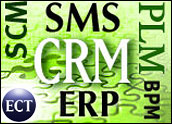
While January 1 is a great mile-marker in any business timeline, the urgency for change needs to be dictated by honest assessments rather than by the flip of calendar pages. We all have enough to do already, and no one wants another action item list. That’s why resolutions can turn out to be counterproductive.
Too many companies enter the new year trying to hope their way into better results. Instead of piling on action items, make a single resolution this year: Get a fresh perspective on your e-commerce and CRM strategies based on true performance.
It’s time to correct the call center glitches that constantly confuse your prospects or clients. It’s time to replace the Web site that publishes last month’s pricing. It’s time to fix the loyalty and channel programs that are out of sync with product introductions planned for 2005.
Don’t be afraid to shoot some sacred cows if they aren’t providing milk.
Resolutions for 2005
Foster an insatiable desire to know your customers and channels. The world leaders at e-commerce and CRM have this attitude so ingrained that it permeates everything they do. Disney has made many forays into e-commerce and CRM and has experienced both successes and failures, but one fact remains: The company has a passion for capturing the attitudes, preferences and purchasing patterns of its target audiences. This year I was at Epcot Center early on New Year’s Day, and Disney marketing managers were there to talk to guests about the New Year’s Eve celebrations the night before. That’s a commitment to listening to customers.
Become a student of how each type of order affects each department. Fundamental but often overlooked, broken order capture, processing and fulfillment kills more companies than anyone will ever know. Getting the wrong products by the boxful or boxcar full is a huge waste of time. When you resolve to change how your company sees e-commerce, you may realize that many order capture systems are sending conflicting messages to the departments they have been developed to serve. It’s time to eliminate multiple order capture systems if they have grown through acquisition rather than through responsiveness to channels and customers. One heavy equipment manufacturer did this and trimmed the number of quoting systems by 50 percent, saving more than US$3 million in maintenance costs in the first 12 months.
Quit using product managers as product catalogs. For one PC manufacturer, the majority of the product manager’s time is not taken up serving the sales force, completing product road maps or tracking what customers want — it’s spent updating configurations on the Web site. Over 60 percent of the product manager’s time is consumed by serving as the content management system. This tremendous waste of time could be easily solved with a content management system that can replicate content across multiple Web sites.
Divide up your e-commerce assets and liabilities and minimize cash burn. Any strategy that is not delivering revenue is a liability, because it’s draining cash from your company. Sure, there are necessary investments, but any e-commerce or CRM investment needs to deliver top-line revenue growth within 12 months to qualify as an asset. If you look at your e-commerce and CRM investments from this perspective, you may find that it is time to hunt sacred cows.
The Bottom Line
Changing your company’s perspective on customer-facing strategies will take work, but it will pay off in the long-run.
Your company can achieve its goals by changing its perspective on e-commerce and CRM first, then selectively making changes to strategy. No one needs another action item list, but they do need fresh perspective on just what their e-commerce and CRM strategies are delivering. From that foundation, lasting change can happen.
Louis Columbus, a CRM Buyer columnist, is a former senior analyst with AMR Research. He currently works in the software industry and recently published the e-book Best Practices in Industry Analyst Relations, which is available on Amazon.com.




































